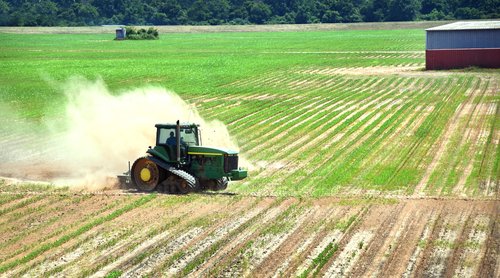Brussels (Brussels Morning) EU member states approved reforms of the bloc’s farming subsidy system on Monday, including new rules to make it more environmentally friendly and supportive of small farms.
Last week, MEPs and representatives of EU member states agreed on Common Agricultural Policy (CAP) reforms, which will make roughly 387 billion euro available to support rural development and farmers between 2021 and 2027, Reuters reported on Monday.
Speaking at the meeting of EU ministers of agriculture where the new deal was approved, EU Commissioner for Agriculture, Janusz Wojciechowski, described it as “essential to ensure that this CAP enables the transition towards sustainable agriculture“.
Agriculture is facing the impact of climate change and is under pressure to become greener. Environmentalists have been pointing out how the sector accounts for approximately 10% of the EU’s greenhouse gas emissions and how it jeopardises natural habitats in the bloc.
The new rules will apply from 2023 with member states having to spend 20% of farming subsidies on “eco-schemes” in the period between 2023 and 2024, and 25% onwards from 2025 to 2027.
Room for interpretation
While terms of the agreement do not define eco-schemes, the European Commission is to assess whether member states’ proposed plans for absorbing CAP funds are in line with relevant EU regulations and environmental targets.
The European Parliament, which wanted to divert more money towards eco-schemes and impose additional restrictions on subsidies for large companies, is to vote on the agreement later this year.
Environmental activists have been critical of some of the reforms, stressing that important protective measures are either voluntary or too weak.
For example, while EU member states have to provide at least 10% of CAP subsidies to smaller farms, they can side-step this requirement by using different methods to distribute the money.
The deal also includes a crisis fund worth 450 million euro for emergencies such as the coronavirus pandemic which disrupt agricultural markets.




